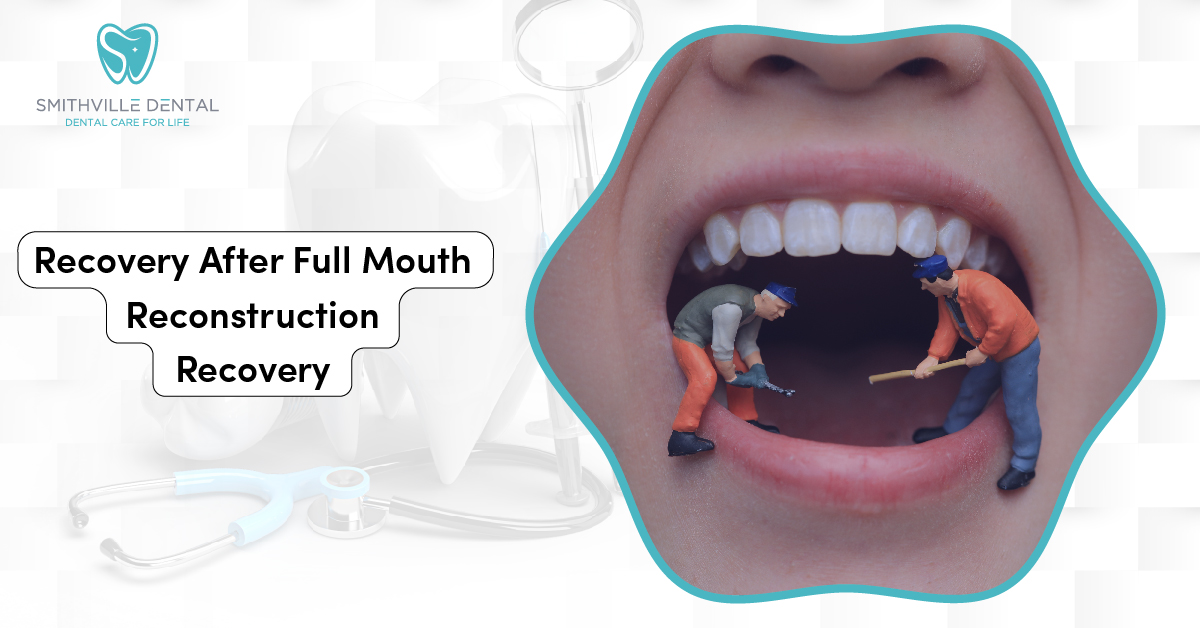Don’t give up if you have several dental problems keeping you from having perfect looks along with chewing and speech. If you are suffering from several dental problems, a Full mouth reconstruction can help you have a functional dentition and a perfect smile.
What to Expect After Full Mouth Reconstruction
Many treatments are used in Full Mouth Reconstruction, which combines all these various procedures into a single comprehensive operation to improve smile and function. Most patients are unsure of what to anticipate during their full mouth reconstruction recovery. To find out more about the recovery timeline and what to expect at each stage of a full mouth restoration, keep reading.
Dental Restorations
Dental Restorations are among the most often used restorative treatment methods, and they typically only require one session with local anaesthetic. Fillings are used to restore teeth with minor decay or damage, and most patients can typically get back to their regular daily activities as soon as they get them. The anaesthesia effects can, however, occasionally take an hour or more to subside.
Bridges and Crowns
Minor tooth damage can also be fixed with crowns and bridges, though these procedures typically require two or three appointments. At the subsequent appointment, the dentist will fit new restoration(s) in the form of a crown or bridge after taking impressions of a patient’s teeth. Sensitivity and swelling near the injured tooth are possible, although these side effects usually go away in a few days.
Endodontic Treatments
Some patients may require a root canal if the pulp within their tooth becomes infected on occasion. The dentist will clean the afflicted tooth after removing the nerves and blood vessels. The new canal will then be sealed off with a restorative material and typically a crown. Contrary to what most people may have heard, this procedure is nearly painless, with most patients only reporting slight discomfort and swelling that subsides within a few days.
You can also read: What Goes On At An Emergency Dental Appointment?
Tooth Removal
A Dentist might advise extraction if there is a tooth that has a poor chance of lasting. It may take up to a week to fully recover following a tooth extraction, depending on self-care and hygiene. The gums will cover the socket in a few days, but the bone beneath may not recover completely for several months. Most individuals resume feeling normal 3 to 5 days after the treatment.
Implant Dentistry
Dental implants are regarded as the best option for replacing missing teeth since they provide unparalleled advantages over other treatment options and can survive for many years with proper care. After being surgically placed into the jawbone, titanium posts will start to osseointegrate or fuse with the surrounding bone. The immediate healing following surgery often only takes a week, but the entire procedure might take up to six months.
Conclusion
Even though full mouth creation may seem like a laborious and protracted process, many of the operations that make up it are simple with reasonable recovery times. It will be easier for you to recuperate if you know what to anticipate during the process.
Whole mouth reconstruction is one of the numerous services that Smithville Dental provides. Our Experts have years of combined experience and are experts in a wide range of specializations. You may get in touch with the clinic online or by phone at 512-237-4420 if you have any inquiries regarding the article or wish to make an appointment.

 Book Appointment
Book Appointment